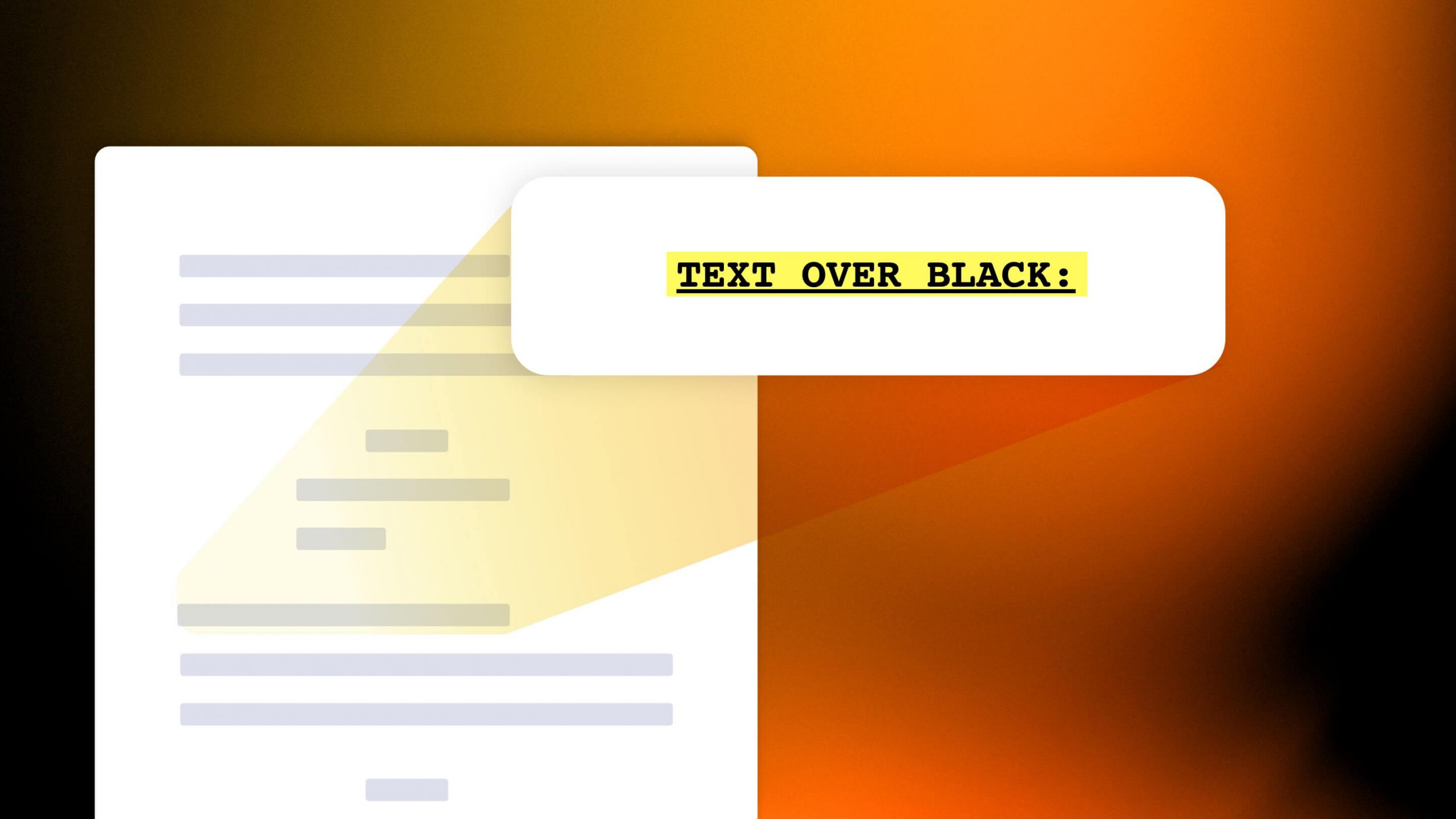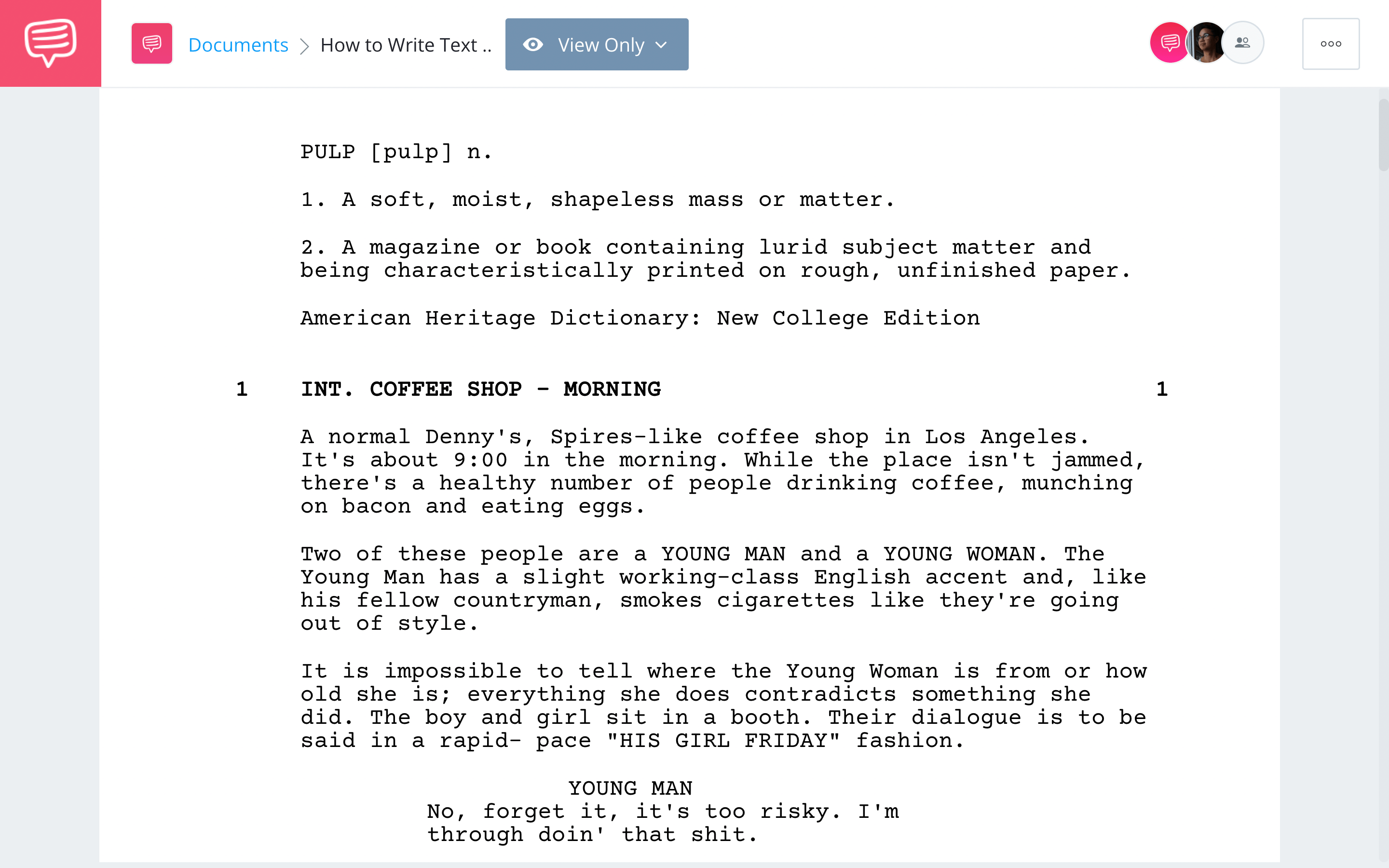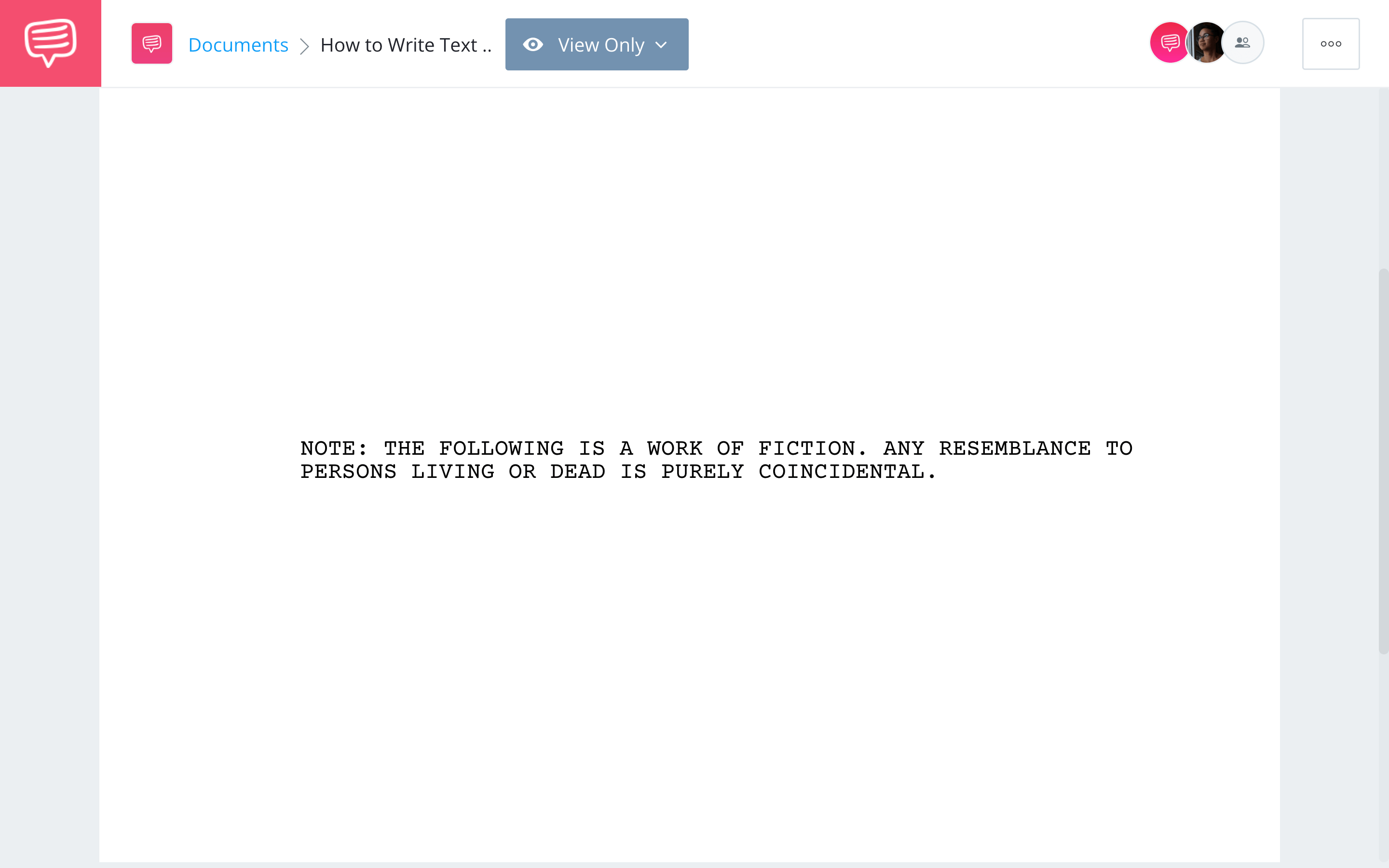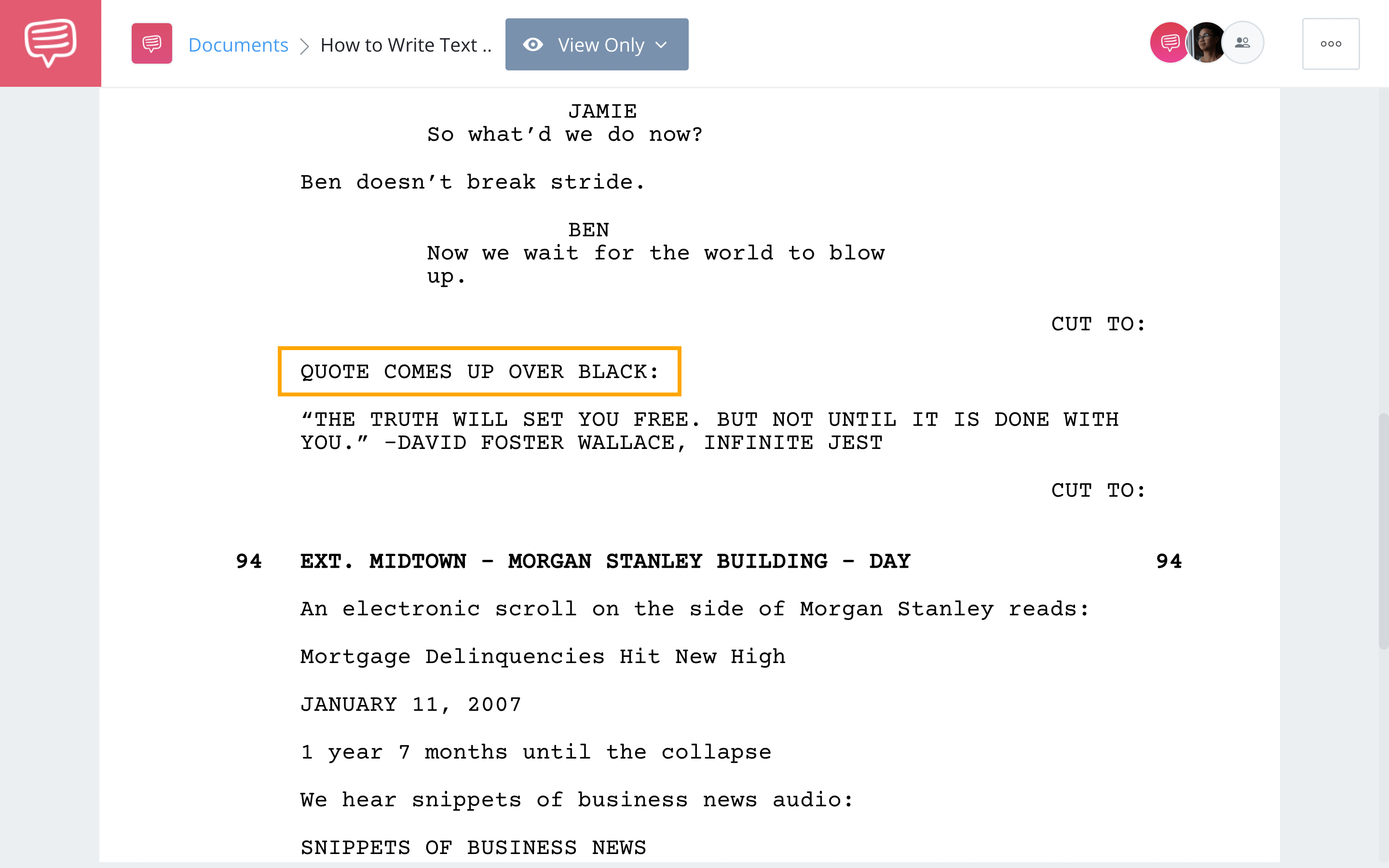It is not uncommon for filmmakers to open a film with a few lines of text over a black screen that set forth the tone or theme of a film. Oftentimes, filmmakers even use text over a black screen to transition between scenes or acts. Doing so can be an extremely direct and efficient way at communicating information to an audience. In this article, you’ll learn how to write text over black in screenplay so you can use it in your own script.
Watch: Anatomy of a Screenplay — Ultimate Guide
How to Write Text over Black in Screenplay
Formatting text on a black screen
Screenwriters often use text on a black screen to open up a film or new act of the story. The text ranges from quotes, time periods, locations, or as in the opening of Pulp Fiction screenplay by Quentin Tarantino, a definition.
Tarantino demonstrates the easiest and most basic way to include text over a black screen in a screenplay. Just write the text before writing any scene headings.
Let’s take a look at how Tarantino crafts the opening of a screenplay with the definition of the word “pulp” over black text. Click the image below to read the opening text using StudioBinder's screenwriting software.
How to write over black in screenplay • Read Pulp Fiction Example
Note how Tarantino and co-writer Roger Avery never note the presence of a black screen. This is because until a master scene heading is established of a location and time, the reader should assume that the screen is still black.
Related Posts
How to Write Over Black in Screenplay
Use an entire page for the text
In more recent screenplay, writers have adapted this method of writing a scene by using the entire page of a screenplay to mimic the framing of the text on screen with nothing else. This can be seen in the 500 Days of Summer screenplay written by Scott Neustadter and Michael H. Webers.
The opening frames of the film hook the audience with three frames of text over black. In the screenplay, each text utilizes a whole page to create the pace and visuals of how the text would appear one by one on screen.
How to write over black in screenplay • Read 500 Days of Summer Example
Now let’s compare this format to the actual opening sequence.
500 Days of Summer Opening Title Sequence
By using entire pages for the text, co-writers Scott Neustadter and Michael H. Weber were able to give the reader the same visual opening as the film would on screen.
Related Posts
This same screenplay format can be seen in Adam McKay’s and Charles Randolph’s The Big Short screenplay. And although they use a whole page to establish a quote written over black text in the opening of the film, later in the movie they use a different technique to format another quote over black text.
How to write over black in screenplay • Read The Big Short Example
Here McKay and Randolph clarify the black screen by writing:
QUOTE COMES UP OVER BLACK:
This format is extremely beneficial when using text over a black screen in the middle of a screenplay. To do this in the StudioBinder screenwriting app, first click on the scene transition icon on the top tool bar.

Screenwriting black screen text
Then, select the transition “Cut to” to clarify that the film is cutting away from the previous scene. Although this is not traditionally used scene to scene, using it for a frame of text over black will help clarify this for the reader.

How to write over black in screenplay
Next, select the “Scene Setting” icon to create a scene heading line in your screenplay.

How to write text over black in screenplay
Rather than choosing INT. or EXT. for this scene heading, type “Text Over Black” to establish the black screen.

Writing text over black screen in screenplay
Finally, select the “Action” icon on the top toolbar and write the text that will appear in this action line.
Writing text over black screenplay format
This format can be used for any text anywhere in your script and will clarify to the reader that the text will appear over a black screen.
Related Posts
UP NEXT
How to Write a Montage in a Script
If you are searching for more ways to expand your toolkit as a storyteller and effective screenwriter, understanding how to format different cinematic elements into screenplay format is crucial. One of these cinematic elements you may come across is the montage. Before you get stuck in the middle of writing your next scene because you don’t know how to format a montage, check out our next article to learn how.



